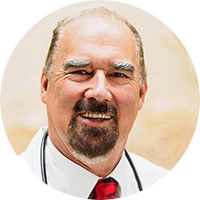Get Easy Health Digest™ in your inbox and don’t miss a thing when you subscribe today. Plus, get the free bonus report, Mother Nature’s Tips, Tricks and Remedies for Cholesterol, Blood Pressure & Blood Sugar as my way of saying welcome to the community!
9 fatty liver disease triggers and 8 ways to avoid it

Non-alcoholic fatty liver disease (NAFLD) is when too much fat builds up and is stored in your liver. If more than 5% of total liver weight is comprised of fat cells, it is a fatty liver.
You cannot survive without your liver and yet, most people aren’t aware of how much stress is put on this hard-working organ day after day.
Alcohol use does not cause NAFLD. Alcohol was long thought to be the sole cause of a fatty liver. Recent studies have shown that other factors raise your personal risk.
However, if those with a fatty liver drink excess alcohol, it can quickly worsen their condition. Taking pain relievers or anti-inflammatories (even over-the-counter versions) can also aggravate a stressed liver. Prescription drugs and painkillers are difficult for your liver to metabolize.
Research in the past decade has linked the emergence of NAFLD to metabolic syndrome. It has become an epidemic in developed countries that have high incidences of obesity and type 2 diabetes. It can gradually progress – if steps are not taken to slow or stop it – to other serious liver conditions, end stage liver failure, and early death.
Primary triggers of fatty liver disease
- Insulin resistance
- Obesity
- Elevated blood sugar (hyperglycemia, pre-diabetes, or type 2 diabetes)
- Poor diet
- High triglycerides (fats in the blood)
- Lack of exercise
- Underactive thyroid (hypothyroidism)
- Underactive pituitary gland (hypopituitarism)
- Genetic variants (specifically PNPLA3)
Fatty liver disease is the most common chronic liver disease in the world. In the United States alone, NAFLD affects more than 80 million people (1-in-5 adults). Experts estimate it will become the number one cause of liver transplants within the next decade.
You may experience no symptoms of liver problems initially.
The human liver is strong and durable; accustomed to handling all the toxins you’re exposed to day after day. This means it’s able to endure years of abuse before it begins to falter.
Once you begin to show signs of liver distress, the problem could already be extremely advanced. You may still show no signs until your liver begins to fail! I’ve written a groundbreaking book on how to love your liver, click here for more information.
Signs and symptoms reported by NAFLD patients
- Nausea and indigestion
- Inability to lose weight
- Excessive sweating
- Hyperthermia (overheating of the body)
- Enlarged liver
- Fatigue
- Pain in upper right area of abdomen
- Abdominal swelling
- Large (possibly visible) blood vessels beneath the skin
- Larger breast tissue in men
- Enlarged spleen
- Red palms
- Yellowing of the skin or eyes (jaundice)
With the right diet and lifestyle changes, NAFLD can be halted and even reversed, according to research published in the Hepatology journal. This means focused steps to removing those things that are contributing to a dangerous fatty liver.
Protect your liver: 8 steps you can take right now
- Control alcohol intake. While one or two glasses of wine a day have proven health benefits, consider avoiding hard liquors.
- Limit high-carb food. Avoid processed foods, white bread, and anything packed with preservatives or refined sugars. A diet rich in carbohydrates overwhelms your liver as simple carbs are converted into sugars and fat.
- Read the labels. Consume flour-based foods in moderation. This includes breakfast cereals, rice, pasta, bread, chips, and fries. Even if the food you eat isn’t made of flour, it’s mixed with or coated with it.
- Cut all trans fats. Fast food, deep-fried anything, and what I call “convenience store” snacks are dangerous. Despite legislation, trans fats are still present in these foods because manufacturers lower the serving size to stay under the maximum allowable. Eliminate all hydrogenated oils and switch to olive or coconut oils.
- Eat more produce. They’re some of the most powerful healing and cleansing foods and are crucial to liver health.
- Exercise regularly. Even low-impact exercise such as walking or yoga does wonders for your health. If you suffer from chronic pain or can’t jump right into exercise, consider stretching in your chair (there are lots of videos on YouTube).
- Control the weight. While even “thin” people have developed fatty liver disease, they are the exception. Obesity is a known risk factor in countless diseases and premature death. Getting your weight down to a healthy level will help your entire body.
- Increase protein consumption. Natural proteins such as meat, eggs, nuts, and seafood stabilize your blood sugar, reduce hunger, and aid in weight loss.
Some simple changes can help avoid or reverse fatty liver disease. A healthy liver translates to a cleaner body and that means a longer, stronger life.
When to see your doctor
Today, most of the human population has access to basic medical information. Certainly, more than at any other time in history (yet, far less than we will have in the future). Gone are the days of requiring a doctor’s visit for every minor burn, cut, cold, or rash.
Your liver is too important to your very life to self-diagnose or leave to chance!
While none of the warning signs listed above is definitive of fatty liver disease, if you’re experiencing more than one – especially if they’re ongoing – consult with your doctor. He may order a liver function test, an ultrasound, or refer you to a specialist.
Sources:
- National Institute of Diabetes and Digestive and Kidney Diseases: Definition & Facts of NAFLD
- Ahmed M. Non-alcoholic fatty liver disease in 2015. World Journal of Hepatology. 2015;7(11):1450-1459. doi:10.4254/wjh.v7.i11.1450.
- PLoS ONE: Prevalence of non-alcoholic fatty liver disease and risk factors for advanced fibrosis and mortality in the United States
- Scientific American: Non-Alcoholic Fatty Liver Disease: America’s Greatest Health Risk of 2015
- Mayo Clinic: Non-alcoholic fatty liver disease
- Hepatology: The Diagnosis and Management of Non-Alcoholic Fatty Liver Disease: Practice Guideline by the American Association for the Study of Liver Diseases, American College of Gastroenterology, and the American Gastroenterological Association (pdf)
- The New York Times: Can You Reverse Fatty Liver?













